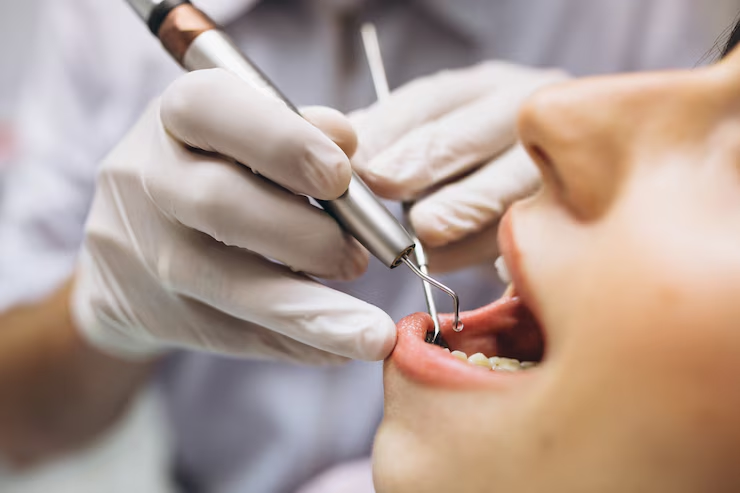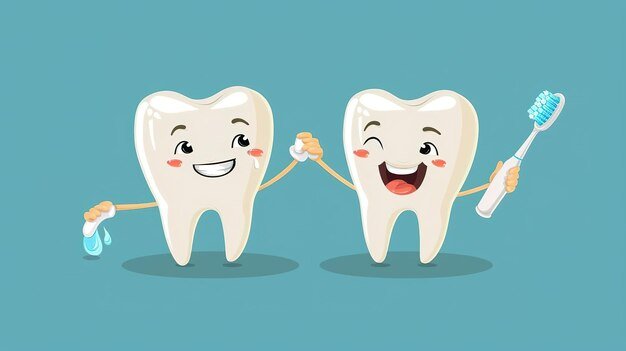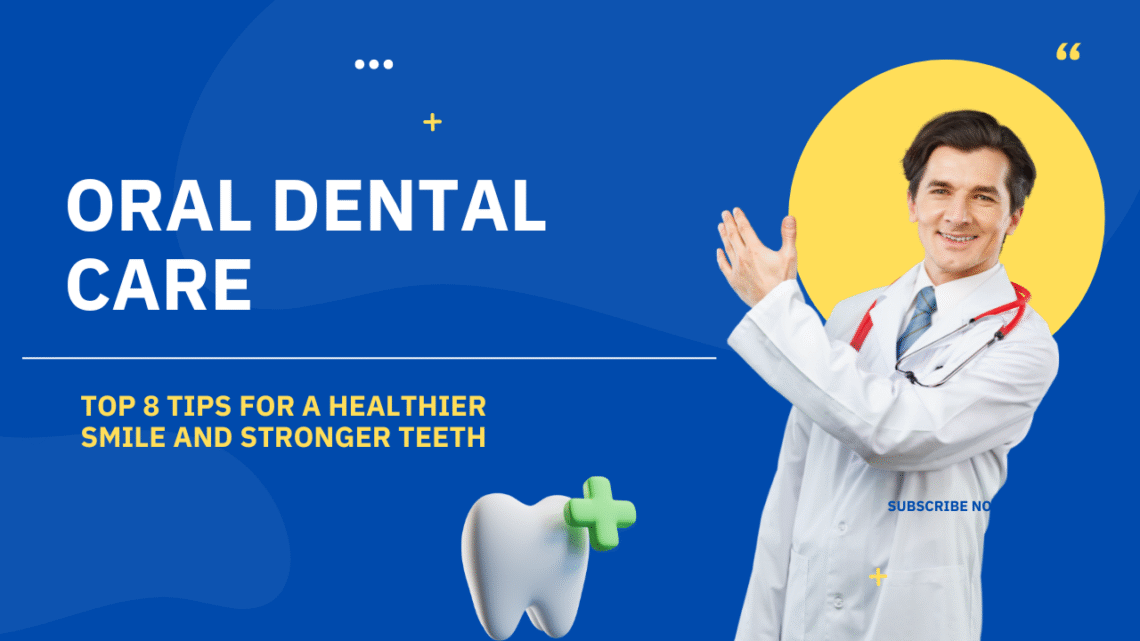A healthy smile goes far beyond aesthetics. Good oral dental care is essential for overall well-being, supporting not just your teeth and gums, but your entire body. Poor oral hygiene can lead to cavities, gum disease, and even systemic health problems like heart disease and diabetes. Fortunately, maintaining oral health is completely within your control.
Taking care of your teeth and gums is essential for more than just a beautiful smile—it directly affects your overall health and quality of life. In this comprehensive guide, we’ll walk you through the foundational aspects of oral dental care, highlight the most common dental problems people face, and share expert-approved tips to help you build strong habits that last a lifetime.
Oral dental care involves a combination of daily hygiene routines, professional checkups, and healthy lifestyle choices. Neglecting your oral health can lead to issues such as cavities, gum disease, bad breath, tooth sensitivity, and even serious complications like infections and tooth loss. What’s more, research shows that poor oral hygiene may contribute to broader health concerns, including heart disease, diabetes, and respiratory issues.
That’s why it’s vital to understand the early warning signs of dental problems and take preventative action. In this guide, we’ll provide the top 8 tips for maintaining excellent oral dental care, from proper brushing and flossing techniques to choosing the right foods and visiting your dentist regularly. By following these practical, evidence-based strategies, you’ll enjoy stronger teeth, healthier gums, fresher breath, and a confident smile that lasts a lifetime.
What Is Oral Dental Care?

Oral dental care refers to the daily and professional practices that keep your teeth, gums, and mouth healthy. It includes:
- Brushing and flossing
- Professional cleanings
- Regular dental checkups
- Proper diet
- Preventing and managing oral diseases
Your mouth is more than just the starting point of digestion—it plays a crucial role in your entire body’s health. Scientific research has shown a strong link between oral health and systemic health, meaning that the condition of your teeth and gums can directly impact your heart, lungs, brain, and more. Harmful bacteria in the mouth, if left uncontrolled through poor oral dental care, can enter the bloodstream and travel to other parts of the body. This can lead to inflammation and contribute to chronic diseases such as heart disease, diabetes, and even respiratory infections.
That’s why prioritizing oral dental care isn’t just about keeping your teeth white or your breath fresh—it’s about protecting your overall well-being. Daily brushing and flossing remove plaque and harmful microbes, preventing them from causing gum disease or slipping into your bloodstream. Regular dental checkups help detect problems early before they escalate into bigger health concerns.
By making oral dental care a part of your holistic wellness routine, you support both your oral and systemic health. It’s a simple but powerful step that strengthens your immune system, enhances your quality of life, and reduces your risk of long-term health issues—all through the power of a healthy smile.
Common Dental Problems Caused by Poor Oral Hygiene
- Cavities (Tooth Decay) – Caused by plaque buildup and acidic foods breaking down enamel.
- Gingivitis – Inflammation of the gums, often reversible with proper care.
- Periodontitis – Advanced gum disease that can damage the jawbone and cause tooth loss.
- Tooth Sensitivity – Pain or discomfort when consuming hot, cold, or sweet foods.
- Bad Breath (Halitosis) – Often due to bacteria, food debris, or underlying dental issues.
- Tooth Erosion – Loss of enamel from acidic drinks or stomach acid.
- Oral Cancer – Often linked to tobacco, alcohol, or HPV infection.
- Tooth Loss – Can result from untreated decay, gum disease, or trauma.
Top 8 Tips for Excellent Oral Dental Care
1. Brush Your Teeth Twice a Day (the Right Way)

Brushing your teeth is the foundation of good oral dental care and your first line of defense against tooth decay, gum disease, and bad breath. To be truly effective, brushing should be done twice a day—once in the morning and once before bed—for at least two full minutes each time. Use a soft-bristled toothbrush to protect your enamel and gums from damage, and choose a fluoride toothpaste to help strengthen your teeth and prevent cavities.
Fluoride works by remineralizing tooth enamel, making it more resistant to acid attacks from food and bacteria. Gentle, circular brushing motions along the gumline and on all surfaces of your teeth ensure thorough cleaning without irritation. Don’t forget to replace your toothbrush every 3–4 months, or sooner if the bristles are frayed.
Making proper brushing a daily habit is a key step in maintaining lifelong oral dental care, keeping your smile healthy, fresh, and confident.
Tips for effective brushing:
- Use gentle, circular motions
- Brush at a 45-degree angle to the gums
- Don’t forget your tongue and inner surfaces
- Replace your toothbrush every 3 months
Using an electric toothbrush can also improve plaque removal and brushing accuracy.
2. Floss Daily to Remove Hidden Plaque
Flossing is a critical yet often neglected part of a complete oral dental care routine. While brushing cleans the surfaces of your teeth, it can’t reach the tight spaces between them. That’s where flossing comes in—it removes trapped food particles and plaque from between your teeth and under the gumline, areas your toothbrush simply can’t access.
Neglecting to floss allows plaque to build up in these hidden spots, leading to tooth decay, gum inflammation, and even periodontal disease over time. Daily flossing helps prevent these issues by keeping your gums healthy and reducing your risk of cavities and bad breath.
For best results, use about 18 inches of dental floss, gently sliding it between each tooth and curving it around the gumline. Be consistent and gentle to avoid damaging your gums. Incorporating flossing into your daily oral dental care routine strengthens your defense against dental problems and supports overall oral health..
Benefits of daily flossing:
- Prevents gum disease
- Reduces plaque buildup
- Helps prevent bad breath
- Protects from cavities between teeth
Use dental floss, floss picks, or water flossers based on your preference. The key is consistency.
3. Visit the Dentist Regularly (Every 6 Months)
Regular professional cleanings and dental exams are essential components of effective oral dental care. While daily brushing and flossing are important, they aren’t always enough to catch or prevent deeper dental problems. Your dentist has the tools and expertise to detect issues that aren’t visible to the naked eye—such as early cavities, gum disease, or even signs of oral cancer.
Professional cleanings remove hardened plaque (tartar) that can’t be removed with regular brushing. This helps prevent tooth decay and keeps your gums healthy. Exams also give your dentist the chance to monitor your oral health over time, identify any changes, and provide early treatment before small issues turn into major problems.
Scheduling a dental checkup every six months is a smart investment in your overall health. Making professional care a regular part of your oral dental care routine helps maintain a clean, healthy mouth and prevents costly, painful treatments down the road.
Why regular dental visits matter:
- Deep cleaning removes hardened plaque (tartar)
- X-rays detect hidden issues
- Prevents costly treatments later
- Builds a trusted relationship with your dental provider
Even if your teeth feel fine, schedule dental checkups twice a year.
4. Eat a Tooth-Friendly Diet
Your diet plays a powerful role in shaping your oral dental care routine and overall oral health. The foods and drinks you consume daily can either protect your teeth and gums or contribute to their deterioration. Sugary and acidic foods—such as candies, sodas, and processed snacks—feed harmful bacteria in your mouth. These bacteria produce acids that wear down enamel, leading to cavities, tooth sensitivity, and gum inflammation.
On the other hand, a diet rich in vitamins and minerals supports stronger teeth and healthier gums. Calcium from dairy products, leafy greens, and almonds helps build and maintain tooth enamel. Phosphorus found in eggs, meat, and nuts works hand-in-hand with calcium to strengthen teeth. Vitamin C, found in citrus fruits and vegetables, is essential for maintaining healthy gum tissue and preventing inflammation.
Staying hydrated is also important for oral dental care. Drinking water helps wash away food particles and keeps saliva production high, which naturally defends against tooth decay. For optimal oral health, aim to limit sugary treats, avoid frequent snacking, and choose whole, nutrient-dense foods.
By being mindful of your diet, you can support your oral dental care efforts and protect your smile from the inside out—one bite at a time.
Foods to include:
- Crunchy fruits and vegetables (apples, carrots)
- Dairy (milk, cheese, yogurt) for calcium
- Leafy greens for vitamins A and C
- Nuts and seeds for minerals
- Green tea for natural antibacterial properties
Foods to limit or avoid:
- Sugary snacks and drinks
- Sticky candies
- Soda and energy drinks
- Acidic citrus (if overconsumed)
Drink plenty of water, especially after meals, to rinse away food particles and bacteria.
5. Don’t Smoke or Use Tobacco

Tobacco use is one of the leading causes of severe gum disease, oral cancer, and tooth loss. It stains your teeth, causes bad breath, and weakens your immune system, making it harder to fight off oral infections.
Quitting tobacco is one of the most powerful steps you can take to improve your oral dental care and overall health. Tobacco use—whether smoking or chewing—directly harms your teeth, gums, and soft tissues in the mouth. It increases your risk of gum disease, tooth loss, bad breath, stained teeth, and slows the healing process after dental procedures. More seriously, it is a leading cause of oral cancer.
Tobacco products reduce blood flow to the gums, weakening your mouth’s natural defenses and making it harder to fight infections. Over time, this leads to deeper periodontal problems and permanent damage. Even with daily brushing and flossing, the harmful effects of tobacco can outweigh good oral dental care habits if smoking continues.
The good news is that quitting tobacco provides almost immediate benefits. Gums begin to heal, your breath improves, and your risk for dental and systemic diseases begins to drop. If quitting feels overwhelming, talk to your dentist or doctor about support programs, counseling, or nicotine replacement therapies that can help you break the habit.
6. Use Mouthwash for Extra Protection
Mouthwash isn’t a substitute for brushing or flossing, but it can offer added benefits. Choose one that contains fluoride and is designed to fight plaque and gingivitis.
Benefits of mouthwash:
- Reduces plaque and gingivitis
- Freshens breath
- Reaches areas brushing may miss
- Strengthens enamel with fluoride
Avoid mouthwashes with alcohol if you have sensitive gums or dry mouth. Swish for 30 seconds after brushing or flossing.
7. Protect Your Teeth During Sports or Grinding
If you play contact sports or grind your teeth at night (bruxism), using a mouthguard is essential. Dental trauma can lead to cracks, chips, or tooth loss.
Types of mouthguards:
- Boil-and-bite: Over-the-counter and affordable
- Custom-fit: Made by your dentist for maximum comfort and protection
Nightguards can also protect your teeth from grinding damage and reduce jaw pain or headaches.
8. Educate Children Early and Lead by Example
Good oral habits should start early. Teaching children proper brushing and flossing techniques helps them develop lifelong oral care routines.
Tips for children’s oral health:
- Supervise brushing until age 7–8
- Use child-friendly toothpaste and brushes
- Avoid giving sugary snacks or drinks before bed
- Take them to the dentist by their first birthday
Be a role model by practicing good oral hygiene yourself. Family routines make a big impact on kids’ dental health.
Signs You Need to See a Dentist Immediately
Don’t ignore these warning signs:
- Persistent toothache or sensitivity
- Bleeding or swollen gums
- Loose teeth
- Sores that don’t heal in two weeks
- Bad breath that won’t go away
- Pain while chewing
- Swelling in the face or jaw
These could indicate infection, gum disease, or even oral cancer. Early treatment can prevent serious complications.
How Oral Health Affects Overall Health
Poor oral dental care doesn’t just lead to cavities—it can affect your entire body. Research links oral health to a variety of systemic conditions:
- Heart Disease: Bacteria from gum infections can enter the bloodstream, causing inflammation and arterial damage.
- Diabetes: Gum disease makes blood sugar harder to control, and vice versa.
- Respiratory Infections: Inhaling oral bacteria may lead to lung infections.
- Pregnancy Complications: Gum disease is linked to premature birth and low birth weight.
- Cognitive Decline: Poor oral hygiene may be associated with Alzheimer’s and other forms of dementia.
Taking care of your mouth is an essential part of total body wellness.
Best Oral Dental Care Products to Use
When choosing products, look for the ADA (American Dental Association) Seal of Approval. Here’s what to consider:
- Toothpaste: Use one with fluoride for cavity prevention.
- Toothbrush: Soft-bristled manual or electric brush; replace every 3–4 months.
- Floss: Traditional string floss, dental picks, or water flossers based on your comfort.
- Mouthwash: Alcohol-free with fluoride or antibacterial properties.
- Tongue Scraper: Helps remove bacteria and improve breath.
Ask your dentist for personalized product recommendations based on your oral health needs.
Sample Daily Oral Dental Care Routine
Morning:
- Brush teeth for 2 minutes with fluoride toothpaste
- Floss thoroughly
- Use antibacterial or fluoride mouthwash
Midday:
- Rinse mouth with water after meals
- Chew sugar-free gum if brushing isn’t possible
Evening:
- Brush again before bed
- Floss to remove the day’s buildup
- Mouthwash or fluoride rinse for added protection
Following a consistent routine strengthens your enamel, keeps your gums healthy, and prevents disease.
Conclusion: Protect Your Smile for Life

Maintaining strong oral health isn’t complicated—it’s about consistency, smart habits, and making informed choices. By following these top 8 oral dental care tips, you’ll reduce your risk of cavities, gum disease, and tooth loss, while improving your overall health.
Your smile is one of your most powerful assets, and protecting it starts with a strong commitment to oral dental care. Daily brushing, flossing, and mindful eating habits are the foundation of keeping your teeth and gums healthy. But it doesn’t stop there—regular dental checkups and cleanings are just as essential for identifying issues early and preventing long-term damage.
Whether you’re teaching children how to develop proper oral hygiene routines, managing current dental concerns like cavities or gum disease, or simply striving for a whiter, healthier smile, every small step counts. By investing time and attention into your oral dental care now, you’re setting the stage for better health, confidence, and well-being in the future.
Oral health is connected to your overall wellness. A healthy mouth can reduce your risk of systemic problems such as heart disease and diabetes. Plus, when you feel good about your smile, it boosts self-esteem and social confidence.
Remember, the habits you build today are the foundation for tomorrow’s dental health. Stay consistent, stay informed, and stay committed to your oral dental care journey—because a brighter, healthier smile is one of the greatest gifts you can give yourself and your loved ones.
Remember: Oral dental care isn’t just about teeth—it’s about your whole body. Invest in your smile, and it will reward you for life.





